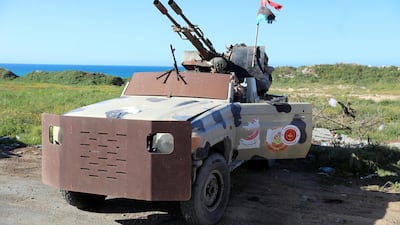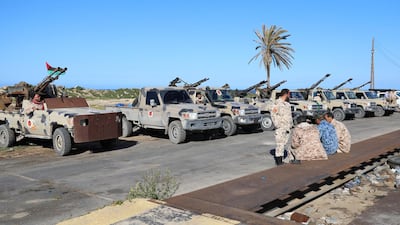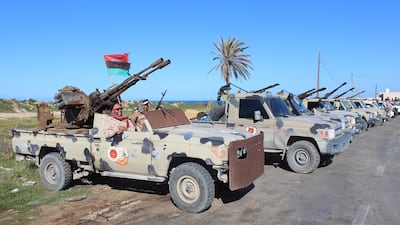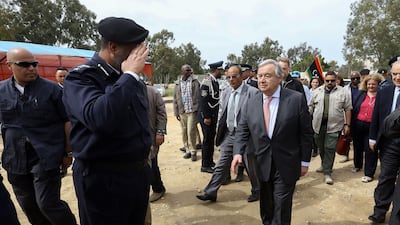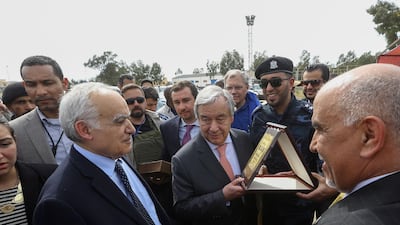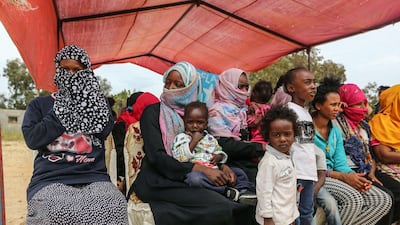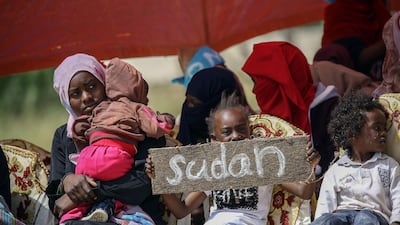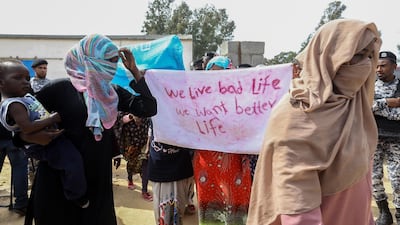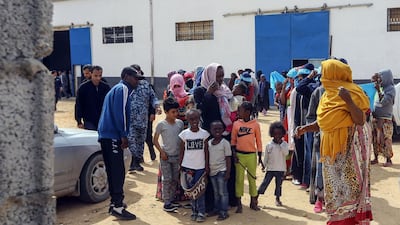Libyan commander Khalifa Haftar’s forces have pushed into the southern suburbs of Tripoli, ignoring calls from the United Nations Security Council to halt his offensive to capture the Libyan capital.
Fierce fighting is continuing around the site of the city’s international airport at Wadi Al Rabea, with Field Marshal Haftar’s Libya National Army (LNA) claiming to have captured the airport.
The airport, abandoned and largely wrecked when civil war broke out in 2014, is seen as a key strategic target because the modern airport road offers LNA armoured units a wide avenue to reach the city centre.
Air strikes by Tripoli’s UN-backed Government of National Accord (GNA) hit LNA vehicles near the airport, and the LNA declared a "no fly" zone in western Libya. Photographs and video on social media showed intense gun battles and blazing wrecked vehicles.
With roads out of the capital mostly blocked, universities cancelled classes and most residents stayed indoors. Photographs on social media showed nearly empty streets in the normally crowded city centre.
Any sign of a diplomatic solution to the fighting appears to be fading. The UN Security Council met in an emergency closed session in New York on Friday, but no resolution was forthcoming.
Instead, Security Council president Christoph Heusgen, Germany’s UN ambassador, said: “The members of the Security Council expressed deep concern at the military activity in Tripoli which risks Libyan stability. They called on LNA forces to halt all military movements, they also called on all forces to de-escalate and halt military activity.”
UN Secretary General Antonio Guterres tried personal diplomacy on Thursday and Friday, meeting with GNA Prime Minister Fayez Al Sarraj in Tripoli and then flying east to meet Field Marshal Haftar and leaders of the House of Representatives parliament, a rival government to the GNA.
Mr Guterres failed to persuade the factions to sign a ceasefire, tweeting on Friday: “I leave Libya with a heavy heart and deeply concerned. I still hope it is possible to avoid a bloody confrontation in and around Tripoli.”
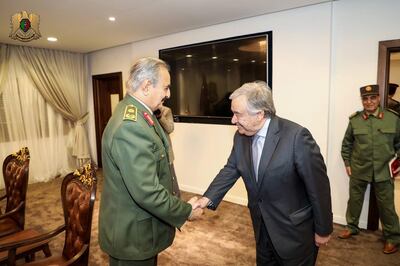
Field Marshal Haftar was quoted by Al Arabiya TV as telling Mr Guterres that the operation to capture Tripoli would continue until terrorism was defeated. The LNA called on Friday for Tripoli’s militias to disarm.
In Tripoli, UN envoy Ghassan Salame said on Saturday he intends to go ahead with a peace talk, the National Conference, planned for April 14. "We have worked for one year for this National Conference, we won't give up this political work quickly," he said. "We know that holding the conference in this difficult time of escalation and fighting is a difficult matter."
With the international community split over Libya, diplomatic solutions appear limited. France and Italy have clashed over Libya in recent months, with the French backing Haftar while Italians favour the GNA.
Their rift, which concerns a wide range of political fissures, spilled over in February with France recalling its ambassador from Rome after complaining of “insults” levelled at it by the Italian government.
These included an accusation from Italy’s Deputy Prime Minister Matteo Salvini that France is worsening Libya’s chaos to help its oil interests: “In Libya, France has no interest in stabilising the situation, probably because it has oil interests that are opposed to those of Italy,” Mr Salvini said in January.
Russia, which has in the past shown support for Field Marshal Haftar, called on Saturday for an end to the fighting, with Russian Foreign Minister Sergei Lavrov calling for a Libyan political settlement while on a visit to Cairo.
Without an international consensus, there is no sign yet of a determined effort by the UN to press the warring parties to call a ceasefire.
Field Marshal Haftar already controls eastern Libya and much of the south, including key oil installations. The GNA, by contrast, has no security force of its own and relies instead on support from the patchwork of powerful militias who control Tripoli. These militias appear to have united to oppose Field Marshal Haftar’s offensive, augmented by reinforcements from Misrata, a coastal town 180 km to the east.


